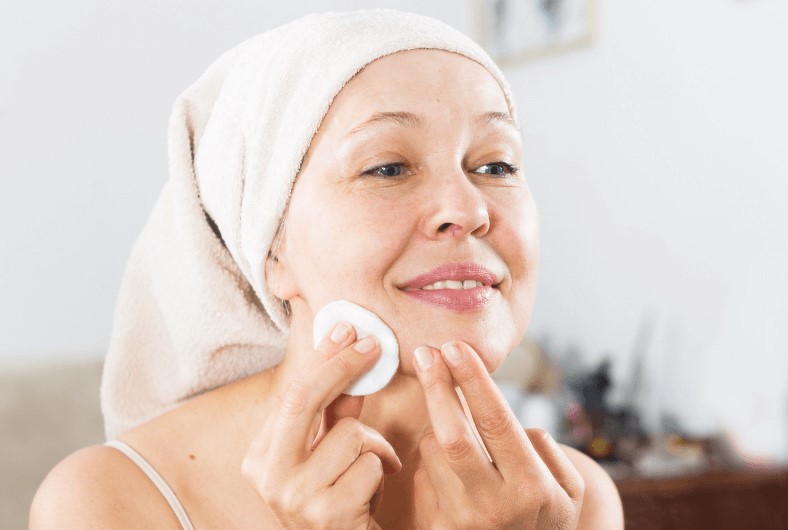Hyperpigmentation (patches of darker skin on your body) is a common problem – it can affect people of any age but often strikes mature skin. It’s sometimes blamed on sun exposure, and certainly wearing sun cream is essential for so many reasons, especially for aging skin, but there are a wide range of conditions and a wide range of causes that can cause your skin to have an uneven tone, and it can impact on any part of the body, not only the face.
Hyperpigmentation can be challenging to treat, but several methods can help reduce its appearance. Here are some general suggestions, but it’s essential to consult a GP or preferably a dermatologist to get advice tailored to your specific skin type and condition:
- Sun Protection: Protecting your skin from the sun is crucial. Use a broad-spectrum sunscreen of at least SPF 30 daily, even on cloudy days or when indoors.
- Topical Treatments:
- Hydroquinone: A skin-lightening agent that can reduce the appearance of dark spots.
- Vitamin C: An antioxidant that can help to lighten pigmentation.
- Retinoids: Products like tretinoin can accelerate skin cell turnover.
- Niacinamide: Helps reduce inflammation and can lighten dark spots.
- Kojic Acid, Azelaic Acid, and Licorice Root Extract: These are also natural lightening agents.
- Chemical Peels: These involve applying an acid solution to the skin to remove the top layers, which can help reduce hyperpigmentation.
- Microneedling: A procedure where tiny needles puncture the skin to stimulate collagen production, which can help in treating hyperpigmentation.
- Laser Therapy: Lasers can target the melanin in the dark spots without affecting the surrounding skin. Commonly used lasers for hyperpigmentation include Q-switched lasers and Fraxel.
- Microdermabrasion: This technique removes the topmost layer of skin, promoting the growth of new, more evenly pigmented skin in its place.
- Cryotherapy: Involves freezing the affected skin area with liquid nitrogen, causing the darkened skin to peel off.
- Oral Medications: Some oral medications, like tranexamic acid, can help in treating hyperpigmentation.
- Regular Exfoliation: Over-the-counter products containing glycolic acid, salicylic acid, or other exfoliating ingredients can help remove the top layer of dead skin, promoting even skin tone.
- Home Remedies: Some people find remedies like turmeric, aloe vera, lemon juice, and apple cider vinegar helpful, but results can vary, and some might irritate sensitive skin.
Note: It’s important to approach treatments gradually and avoid combining too many methods at once to prevent irritation or worsening of the condition. Always do a patch test before applying any new products to your entire face or affected area.
While improvements can be seen over time, there is no ‘magic formula’that delivers instant results (despite what internet click bait tells you). If it sounds too good to be true, it probably is, and a dermatologist is almost certainly the best route to improving your skin’s tone for good.




